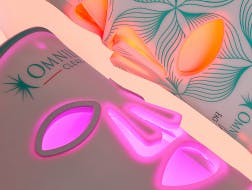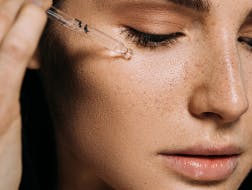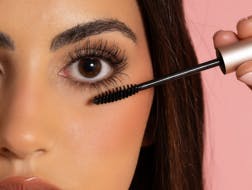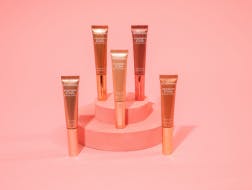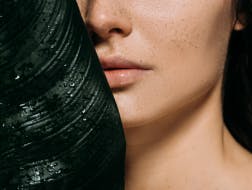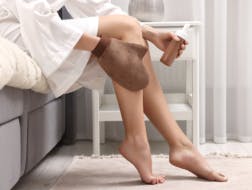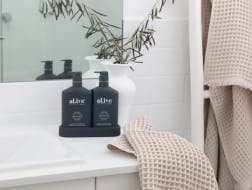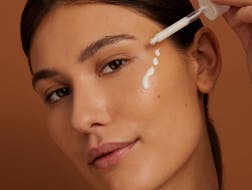A retinol serum is a true multi-tasker skincare product thanks to an array of anti-ageing benefits. A good quality retinol serum can fight signs of ageing to help maintain a more youthful skin appearance and act as an effective pigmentation serum to counter sun-damage. Furthermore, retinol serum can be very beneficial for diminishing the visible effects of acne and uneven skin texture.
Retinol Serum For The Face
As a type of vitamin A derivative, a retinol serum penetrates the skin deeply and is
the perfect accompaniment to the skincare regime. As a corrective treatment for the face, the skin renewal properties of a retinol serum help to soften skin imperfections and enhance an overall more youthful skin appearance.
Retinol Serum for Anti Aging
Most popular as an anti-ageing treatment, a retinol serum works by stimulating skin cell turnover whilst aiding the removal of devitalised dead skin cells, to help reduce the appearance of fine lines, wrinkles, sun-damage and age spots. In hand with this, retinol serum has the ability to stimulate collagen production, which is vital for keeping the skin plump and youthful and minimise the appearance of enlarged pores.
Best Retinol Serum Australia
Looking for the best retinol serum in Australia is easy when we have all the best brands on offer here at Activeskin. Skinstitut’s Retinol Serum is well known for its effectiveness yet gentleness on the skin. The Ordinary offers an affordable vitamin A based treatment serum whilst Skinceuticals is renowned for the efficacy of its medically formulated Pure Retinol 0.5. Whichever you choose, your skin will reap the benefits.
Buy Retinol Serum Online
Buying a retinol serum online is easy, with fast delivery to your door. Simply find the best retinol serum for your skin type and concerns, add to cart and before you say “checkout” we’ll have your retinol serum delivered.
What Does Retinol Serum Do
Retinol Serum is not only an anti-ageing superhero, but the best friend of acne prone, post surgical and uneven textured skin. The skin cell renewing capabilities in hand with the collagen stimulation mean this treatment product effectively smooths, refines pores, diminishes scarring and softens the appearance of fine lines and wrinkles whilst helping fade sun-damage. It is therefore imperative that you wear a high SPF sunscreen everyday when you are using a retinol serum, regardless of your intended sun exposure, as it can make your skin more sensitive to UV.
When to use Retinol Serum
With respect for the potent formulations and power to correct the skin, a retinol serum is best used at night under your night time moisturiser. The reason for this is two fold; to allow adequate skin repair while you sleep at night, and prevent unwanted skin damage caused by photosensitivity if used during the day.
How to use Retinol Serum
It is recommended to use a retinol serum gradually, spacing application twice weekly and slowly increasing frequency as comfortable. This allows skin tolerance to be built for best results, whilst minimising the risk of skin sensitivity, flaking, peeling or discomfort. On cleansed skin at night only, apply a small amount of retinol serum to the face carefully avoiding the lips and orbital eye area. Follow this with your night cream for hydration. It is also not negotiable to wear high sun protection every day whilst using a vitamin A product at night as this treatment product can cause skin sensitivity to sunlight.
Is Retinol Serum Safe
When used as recommended, retinol serum is very safe to use and can deliver very desirable results. Be sure to check with your dermatologist prior to use if you are taking oral anti-acne medication such a Roaccutane, applying topical acne treatments, are using other vitamin A based products or have sensitivity concerns. Avoid using retinol serum whilst pregnant or lactating.
Can I Use a Retinol Serum and Retinol Cream Together
For optimal skin comfort and care, we recommend a retinol serum is not used in conjunction with a retinol cream unless under the strict guidance of a qualified skin therapist or dermatologist.

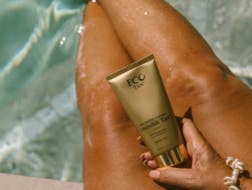
.png?ixlib=gatsbyFP&auto=compress%2Cformat&fit=max&rect=0%2C0%2C252%2C190&w=252&h=190)
.png?ixlib=gatsbyFP&auto=compress%2Cformat&fit=max&rect=68%2C0%2C663%2C500&w=252&h=190)
